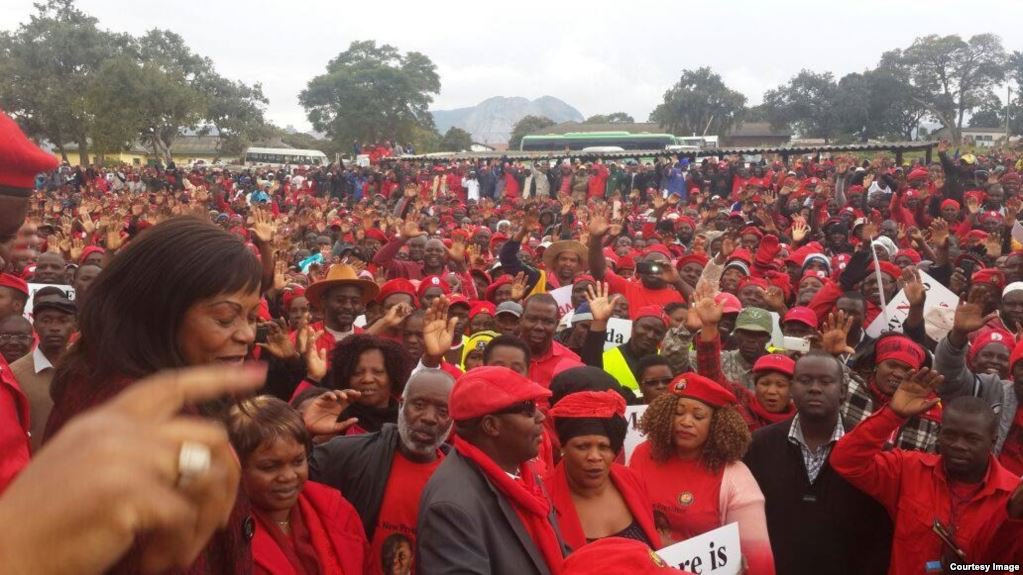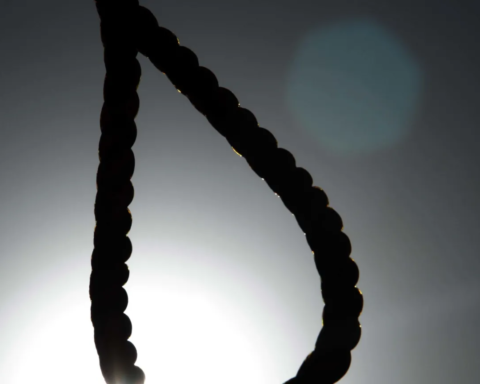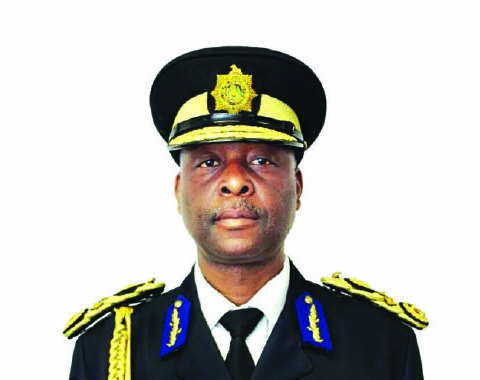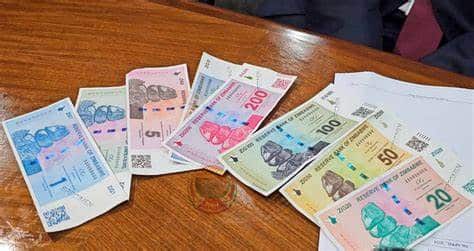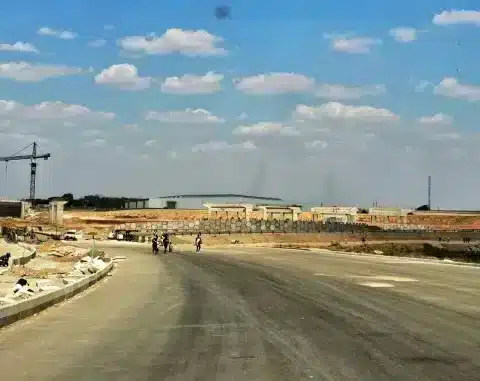The stage for a transition in Zimbabwe is set. Even exogenous factors are in sync with the transition agenda. However, just like a small virgin boy, the opposition seems too excited by the delusion of weilding power or the hope of weilding power someday to such an extend that just a mere glimpse of ‘the curves of power’ from a distance by the opposition has led to perrenial premature ejaculations.
One wise man once intoned that proximity to power deludes some into thinking they weild it. Despite its laudable exploits of the past, it seems as though Zimbabwe’s opposition movement suffers from perrenial premature ejaculations. By merely catching a glimpse of the ‘curves of power’ they ajaculate.
HISTORY OF THE OPPOSITION
The elections of 1980 which ushered in Zimbabwe’s independence were resoundingly won by the Mugabe led Zimbabwe African National Union (ZANU) with a huge margin of 80%. Zimbabwe African People’s Union (ZAPU) won all seats in the South West much to the chagrin of Mugabe who always wanted a one party state.
A revolt by some rogue ZAPU elements in the South West precipitated an unprecendented attack on ZAPU presided over by Mugabe in 1983. That attack was superintended and chiefly exercuted by the Fifth Bridage – an army unit trained by the North Koreans. This operation is widely known as Gukurahundi – which means the storm that washes the chaff.
After monumental atrocities had been committed against the people of the South such as killings, rape, torture, displacements and food deprivation, something extraordinary happened. In 1987 Joshua Nkomo, the leader of the oldest revolutionary movement in Zimbabwe, ZAPU, gave in. That led to the absorption of ZAPU into ZANU, forming Zimbabwe African National Union – Patriotic Front (ZANU – PF). The opposition had been swallowed and Zimbabwe was now a one party state as per the wish of Mugabe.
The period between 1987 and 1999 saw the formation of several opposition parties but none of them paused any real threat to ZANU – PF. These parties were insignificant or they were ruthlessly dealt with, confining them to insignificance.
In 1999, a different kind of an animal from what ZANU – PF had gotten accustomed to was born. Rooted in the labour movement which had led to the formation of the National Constitutional Assembly (NCA) in 1994 whose mainstay was advocating for a new constitution, the Movement for Democratic Change (MDC) was formed and officially launched on the 11th of September 1999 to challenge Mugabe and ZANU – PF.
From 2000 to date, elections have not been a stroll in the park for ZANU – PF. The formation of the MDC changed the game and impacted the political landscape drastically. Ever since its formation, the MDC under the leadership of Morgan Tsvangirai has remained the major and only serious threat to ZANU – PF. History is replete with stark evidence pointing towards the fact that every election has been marred with irregularities, manipulation and controversy from the time MDC was formed.
With time and after enduring several dissapointments along the way, the MDC grappled with internal challenges. In 2005 and in 2013, the party went through demaging splits. Meanwhile, other opposition political parties were erupting from every corner too. It meant that the MDC was nolonger the only opponent ZANU – PF faced notwithstanding it remained and remains its only significant opponent thus far.
Observers and analysts argue that Tsvangirai and the MDC won the 2002 Presidential and 2008 harmonised elections. Relying heavily on state apparatus such as the military, Mugabe and his ZANU – PF stood in the way of a transition more than once. After the manipulated 2008 elections, a sham rerun took place and that led to the formation of the Government of National Unity (GNU) in 2009 made up of ZANU – PF and the main opposition (parties).
During the tenure of the GNU, the opposition failed to make headway with its reform agenda only managing to arrest an economic meltdown. After the expiry of the GNU in 2013 and the subsequent elections which most analysts and observers content were resoundingly won by Mugabe and ZANU – PF, the opposition landscape has never looked the same. The MDC went through another ugly split in 2014 and more political parties have been formed since then.
CURRENT STATE OF THE OPPOSITION
As we stare the 2018 elections, the state of the opposition leaves a lot to be desired. A lot must be done to inspire hope and confidence in the masses.
It is a highly uncontestable fact that the state of decadence and morass that we find ourselves in is chiefly a product of ZANU – PF’s misrule and leadership failure. ZANU – PF has presided over bewildering failures ever since the attainment of independence in 1980.
While the mainstay of our focus is consumed in trying to debunk and ultimately discard ZANU – PF, we must not fall into the trap of not paying enough attention to an equally important enclave – the opposition. The state and role of the opposition in the quest towards Zimbabwe’s rebirth can never be underestimated.
The following are some of the worrying realities about Zimbabwe’s opposition:
1. Over 50 registered political parties
The last time I checked, there were over 50 registered political parties in Zimbabwe, a number I am confident has doubled by now. It’s ridiculous and alarming that a small country like Zimbabwe has over 50 registered opposition political parties. All those and many other unregistered parties are targeting Robert Mugabe and ZANU – PF. In Zimbabwe, everyone is everything and everyone knows everything. Everyone has an opinion and they feel their opinion is the best. Our lack of unity of purpose and ideological clarity has prolonged our opression.
2. Ego contest
Sadly, what we are witnessing in the opposition movement is an unexciting and uninspiring ego contest. Opposition leaders find themselves trapped in vain low seat fights in order to satiate their evidently impoverished egos. Their self concepts and egos are highly indexed and often detracts from the commonality of purpose. Demeaning each other publicly while their equally frivolous followers cheer is the norm for opposition leaders. They fight and lose sight of the big picture over petty issues which even kindergarted kids can resolve amicably. The ludicrous proliferation of opposition political parties is not premised on anything else other than stupid egos.
3. Discord
Even though their enemy is purportedly just but one, Robert Mugabe and his ZANU – PF, surprisingly, it seems hard for the opposition to speak with one voice. The opposition movement is infested with discord of a sordid nature. Inspite of them supposedly serving a common purpose and catapulted by a common desire to annihilate a common enemy there is no coherence whatsoever in their voice.
4. Struggle within the struggle
Zanu – PF certainly has factions and internal problems but it has somehow managed to find a formula of remaining agglutinated against the odds. When it comes to power retention, ZANU – PF factions put aside their differences. The opposition has dismally failed in that regard. They behave as those two men who wish to find a coin and begin to fight over who would take it even before finding and securing the coin. The proposed alliance is threatened by vicious undercurrents emanating from selfishness, dictatorship and disregard of protocol in some cases. It’s a struggle within the struggle.
4. None of the 50 plus parties will outrightly win the 2018 elections
Everything being constant, given the current dynamics, unless if something drastic happens, none of the current opposition parties will win outrightly the 2018 election against ZANU – PF. Like it or not, ZANU – PF has a deeply entrenched system and that’s the mainstay of its power. For it to dismantle, it will take more than a fragmented and confused opposition movement.
5. Lack of funding.
After the opposition’s failure to secure power several times, exhibiting lack of accountability and ineptitude, flagrant resource abuses and failing to effect radical leadership and strategy changes, donors have developed cold feet. There is little or no external financial support going towards the opposition in Zimbabwe. As such, it is confronted with so many challenges ranging from lack of finance to move around mobilizing people. Without money, winning an election especially against a well oiled system is a far fetched dream.
The ruling party brags about its incumbency advantage and being in control of state resouces which they abuse to remain in power.
6. Poor strategies
The need for cut throat and absolute genius strategies at this juncture cannot be overempasized. ZANU – PF has invested in strategic think tanks. The decider of the 2018 elections will be the youth vote. ZANU – PF knows this and that is why it has shifted its focus to the youths. Mugabe is going around the country meeting youths in all provinces under the banner of a process dubbed youth interface rallies. On the other hand little is being done by the opposition even under the recently formed MDC Alliance to capture the youth vote. Its a strategy issue.
THE ROAD AHEAD AND THE THREE SCENARIOS
1. The state and future of ZANU – PF
The reality of factional fights rooted in the fluid succession battle subsisting in ZANU – PF and Mugabe’s incapacity to function at full throttle due to old age are incontestable. Regrettably, the opposition is not utilising those factors as opportunities as much as it should as a result of its perculiar frailties and challenges.
Unless if more work is done by the opposition, or unless if something outrageous, unforeseen and natural (Mugabe’s death) happens, all indicators are pointing towards the fact that Mugabe is likely going to win in 2018. If he does win, I shudder to think that we will witness an implosion of the opposition soon after the election. After 18 years of brave and consistent fighting but failing to remove Mugabe, Tsvangirai will either bow out or be pushed out.
If Mugabe wins in 2018, ZANU – PF would have rewarded itself with a lifeline and enough time to manage its leadership transition. At some point, Mugabe’s successor will be established. If that happens, ZANU – PF will regenerate itself into probably a much more stronger monster.
Adimmittedly, whoever is going to succeed Mugabe, will have big shoes to fill. However, dispite the fact that the individual might not have Mugabe’s clout and star power he/she will have the power of incumbency and a well oiled system undergirding him/her going into the 2023 elections.
On the other hand, after the imminent implosion, the opposition will approach 2023 deeply fractured, without a unifying face and without a convincing narrative.
Depending on who is going to take over from Mugabe and the work that shall be done chiefly towards rejuvinating the economy and if that actually happens then the wait for a transition is going to be painfully prolonged.
2. A new formula and formation within the old opposition
The honest truth is that what the opposition needs right now is a new formula and formation altogether. The opposition must reform and rebirth. Antiquated rhetoric and dogma predicated on sloganeering will not inspire hope and action. A new formula and formation comprising of the old and new is needed as soon as possible.
While it is commendable that the old guard seems to be taking baby steps towards finding each other, it is the ommision of the new that is worrying and can be the premise of the oppossition defeat in 2018. The game changers for the 2018 elections are the young people. As such, any process which doesn’t have the young people at its core is doomed to fail.
Approximately above 65% of eligible voters are under the youth bracket. 2% of those between the age of 18 to 35 voted in 2013. 82% of those between the age of 35 to 55 voted in 2013. Those above 55 years constituted 16% of the voters in 2013. Even though 2% of the youths (those between 18 and 35 years) voted in 2013 they remain the biggest constituency and anyone who increases that number from 2% is going to win the 2018 election.
Above and beyond efforts being registered to adress issues such as a transformational and transition blue print, reforms, mobilisation, voter education, coalition, voting, defending the vote and ultimately implementing the blue print, if deliberate and uncompromising effort is not channelled towards capturing the youth vote as the mainstay of the 2018 elections, everything being done will not usher in the eagerly awaited and delayed transition.
Capturing and inspiring the cardinal youth vote will take more than an alliance of old people. New blood and talent that is in touch and appealing to youths of all classes must be harvested into the opposition. The opposition must do away with its arrogance based on imaginary power and act on this as a matter of urgence.
3. The Third force
Failure to invoke a new formula, formation and to harvest talent is only going to lead to the emegency of a third force. The form and nature it will take is not yet clear to me. I hope to unpack that aspect in the not too distant future.
If the opposition continues on the precarious path of arrogance, we are going to witness a rapid increase of independent candidates in the 2018 elections. Those are individuals who would have been stone walled out and denied space within the peripheries of established opppsition parties. What is critical to note is the fact that the majority of those people are good talent.
Sadly, this good talent seems to be equally confused and megalomaniac too. It is as though they inherited the demons of disunity, frivolity, selfishness and naivety which have become hallmark features of the current opposition.
I nonetheless foresee and project the emergence and crystalising of a third force or way as some may wish to call it in the not too distant future. This force will be made up of chiefly fresh and untainted set of faces. The young people of Zimbabwe are going to rise up and they are going to force every person who is not going to be a part of their future to resign from the charade of purportedly leading this nation or fighting for its total liberation.
CONCLUSION
I am not a defeatist neither am I pessimistic but realism sometimes inoculates us against the pain of impracticable expectations. In the same vein, I do not subscribe to the fallacious notion that ZANU PF is invincible. It can be uprooted but it wont be a stroll in the park. Much more work can and must be done.
